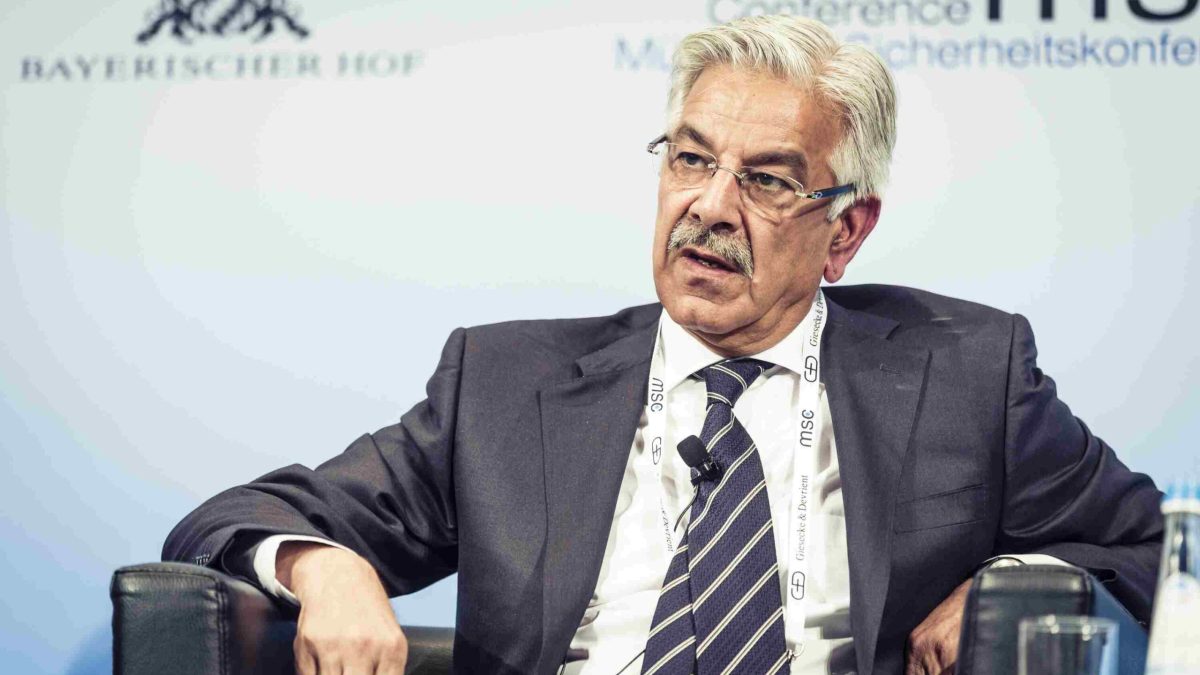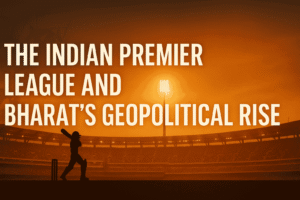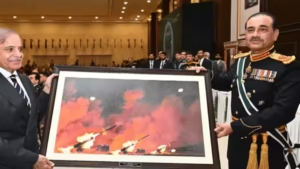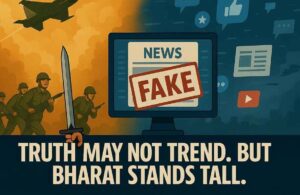Namaste.
I am Bharat — the voice of civilizations who have seen wars waged in the name of peace, and peace sold for the price of bullets. This isn’t a tale from the battlefield — it’s from a podium. A truth that world powers hoped would stay hidden was just exposed by the last person you’d expect.
The Statement That Shook the Geopolitical Table
Pakistan’s Defence Minister, Khawaja Asif, recently sparked controversy with a bold claim that’s now making waves across the world. In a video that quickly went viral on X (formerly Twitter), Asif accused the United States of intentionally stirring up global conflicts to keep its powerful arms industry running. “In the last 100 years, Americans have generated wars. They have fought 260 wars, while China has only engaged in three.
Their military industry is a massive, well-established sector and forms a major part of their GDP. That’s why they continue to create conflicts.”
🚨HUGE: Pakistan Defence Minister Khawaja Asif says that US fuels war between two countries to sell weapon & make money.
— BALA (@erbmjha) May 24, 2025
Doland @realDonaldTrump ye sahi bol raha hai? pic.twitter.com/9HaTJKfnIl
He didn’t stop there. He cited once-prosperous countries — Syria, Egypt, Libya, and Afghanistan — now left in ruins. “These countries were once wealthy. Now they are bankrupt,” he added.
“The American defense industry thrives on chaos and instability. They play both sides in wars.”
This wasn’t some obscure allegation. It came straight from the Defence Minister of a long-time U.S. ally, one that has heavily relied on American military and financial support for decades.
A Truth Many Knew — But Rarely Said Aloud
What Asif said might not be shocking to those who’ve followed global affairs closely. The idea that the United States profits from global conflicts — through its massive defense and arms industry — is nothing new.
Since the end of World War II, the U.S. has become the biggest arms dealer on the planet. You can find its military influence everywhere — from the deserts of the Middle East to the islands of Southeast Asia. Just in 2023, America’s defense budget blew past $850 billion, which is more than what the next ten countries spend combined War, for the U.S., isn’t just policy. It’s business — big business.
But when that truth comes from the mouth of a U.S.-aligned Defence Minister, it hits different. It’s not just a claim anymore. It’s a confession from within the system.
Backlash, Hypocrisy & the Internet’s Verdict
As expected, the internet erupted. While some people agreed with the core of Asif’s message, many others were quick to call out Pakistan’s obvious contradictions. “When Pakistan needed money, it leaned on America. Now that the funds have dried up, it’s busy pointing fingers,” one user wrote. Another added, “That’s rich coming from a Defence Minister whose entire strategy depends on Washington and Beijing.” Despite all the irony, one thing remained clear: even if the messenger has flaws, the message itself can’t be ignored.
What India Should Learn — and Lead
So, where does India fit into this story?
For decades, New Delhi has maintained strategic autonomy in global affairs. India has resisted the temptation to become a pawn in superpower rivalries, and that positioning now pays off — especially when adversaries start echoing India’s concerns.
Here’s what India can — and should — take from this moment:
1. Let Others Say What You’ve Always Known
India has long highlighted how Western powers interfere in global conflicts for profit or control. Now, when Pakistan confirms the same, it strengthens India’s stance.
For Bharat, a Familiar Game
As Bharat, I’ve seen this pattern before.
From the British East India Company, which sold weapons to both Marathas and Mughals…
…to the Cold War, where India was pressured by both Washington and Moscow to pick a side… History whispers what Asif just shouted: When peace doesn’t pay, war becomes a product.
Bharat’s Final Word
They sold chaos.
Packaged war as peace.
And made profit from the pain of others.
This time, the mask slipped — not in a secret memo or leaked document, but in the words of a minister whose country once stood beside them.
I am Bharat — the land that gave the world Gandhi’s truth, Ashoka’s wisdom, and Krishna’s clarity in chaos.
I’ve seen empires rise and fall. I’ve watched as peace was twisted into a product, and sovereign nations reduced to nothing more than markets.
But hear this, loud and clear:
Peace is not weakness. It’s strength held back by choice.
Truth is not silence. And India will not be part of this theatre of blood for profit.




